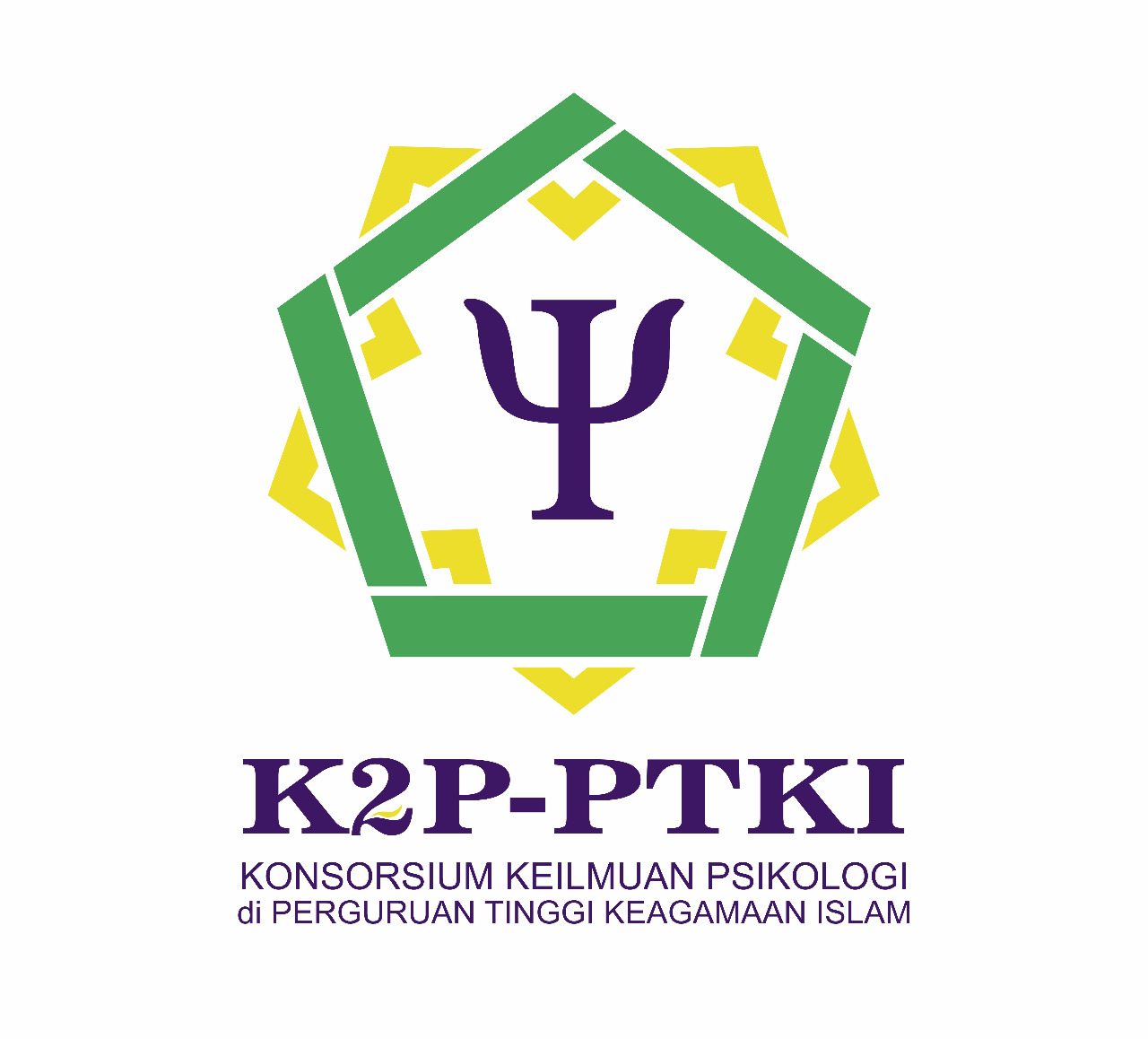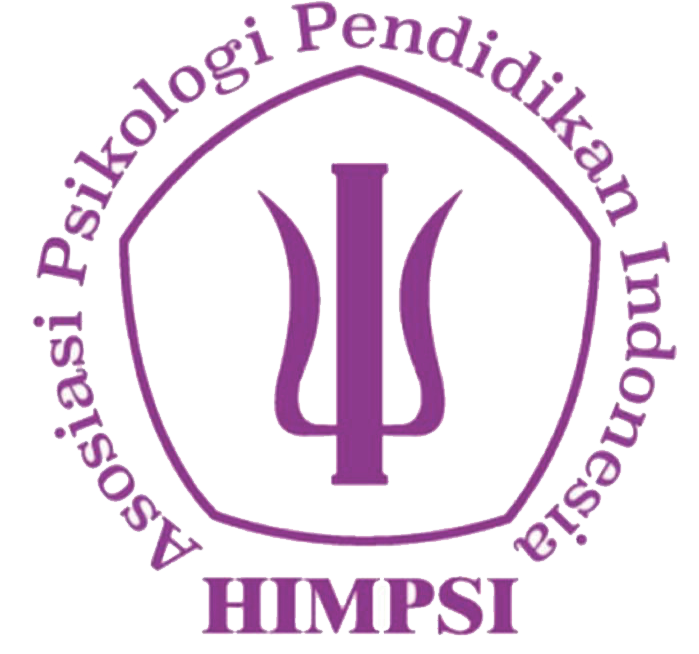Adaptation of Interpersonal Support Evaluation List (ISEL-12) for Mothers of Children Aged 3-6 Years in Indonesian Context
Abstract
Keyword: Mother’s; Social Support; ISEL
Keywords
References
Brookings, J. B., & Bolton, B. (1988). Confirmatory factor analysis of the interpersonal support evaluation list. American Journal of Community Psychology, 16(1), 137–147. https://doi.org/10.1007/BF00906076 Cohen, S, Mermelstein, R., Kamarck, T., & Hoberman, H, M. (1985). Cohen, S. In International Encyclopedia of Human Geography (pp. 167–169). https://doi.org/10.1016/B978-008044910-4.00600-3 Cohen, Sheldon, & Hoberman, H. M. (1983). Life Change Stress ’ m a l. Journal of Applied Social Psychology, 13(2), 99–125. Cohen, Sheldon, & Willis, T. (1994). Stress, Social Support, and the Buffering Hypothesis Sheldon. General Hospital Psychiatry, 16(1), 20–31. https://doi.org/10.1016/0163-8343(94)90083-3 Comstock, R. D., Castillo, E. M., & Lindsay, S. P. (2004). Four-Year Review of the Use of Race and Ethnicity in Epidemiologic and Public Health Research. American Journal of Epidemiology, 159(6), 611–619. https://doi.org/10.1093/aje/kwh084 Delistamati, E., Samakouri, M. A., Davis, E. A., Vorvolakos, T., Xenitidis, K., & Livaditis, M. (2006). Interpersonal support evaluation list (ISEL) - College version: Validation and application in a greek sample. International Journal of Social Psychiatry, 52(6), 552–560. https://doi.org/10.1177/0020764006074184 Duncan, L., Coatsworth, J., Gayles, J. G., Geier, M., & Greenberg, M. (2015). Can mindful parenting be observed? Relations between observational ratings of mother-youth interactions and mothers’ self-report of mindful parenting. Journal of Family Psychology : JFP : Journal of the Division of Family Psychology of the American Psychological Association, 29 2, 276–282. https://doi.org/10.1037/a0038857 Geisinger, K. F. (1994). Cross-cultural normative assessment: Translation and adaptation issues influencing the normative interpretation of assessment instruments. Psychological Assessment, 6(4), 304–312. https://doi.org/10.1037//1040-3590.6.4.304 Halberstadt, A. G., Langley, H. A., Hussong, A. M., Rothenberg, W. A., Coffman, J. L., Mokrova, I., & Costanzo, P. R. (2016). Parents’ understanding of gratitude in children: A thematic analysis. Early Childhood Research Quarterly, 36, 439–451. https://doi.org/10.1016/j.ecresq.2016.01.014 Handayani, A., Yulianti, P. D., Nyoman M., N. A., & Setiawan, A. (2019). Mindful Parenting Based on Family Life Cycle [Mengasuh Berkesadaran Berdasarkan Tahap Perkembangan Keluarga]. ANIMA Indonesian Psychological Journal, 35(1), 56–84. https://doi.org/10.24123/aipj.v35i1.2882 Harmon, D. K., & Perry, A. R. (2011). Fathers’ unaccounted contributions: Paternal involvement and maternal stress. Families in Society, 92(2), 176–182. https://doi.org/10.1606/1044-3894.4101 Marnat, C. . (2009). Psychological Assessment Fifth Edition. In Handbook of psyghological assessment. Merz, E. L., Roesch, S. C., Malcarne, V. L., Penedo, F. J., Llabre, M. M., Weitzman, O. B., Navas-Nacher, E. L., Perreira, K. M., Gonzalez, F., Ponguta, L. A., Johnson, T. P., & Gallo, L. C. (2014). Validation of Interpersonal Support Evaluation List-12 (ISEL-12) scores among English- and Spanish-speaking Hispanics/Latinos from the HCHS/SOL Sociocultural Ancillary Study. Psychological Assessment, 26(2), 384–394. https://doi.org/10.1037/a0035248 O’ Leary, K., Dockray, S., & Hammond, S. (2016). Positive prenatal well-being: conceptualising and measuring mindfulness and gratitude in pregnancy. Archives of Women’s Mental Health, 19(4), 665–673. https://doi.org/10.1007/s00737-016-0620-x Pratiwi, N. I. (2021). Dukungan Sosial Dengan Penerimaan Diri Pada Orang Tua Yang Memiliki Anak Berkebutuhan Khusus Ditinjau Dari Tingkat Pendidikan Orang Tua. http://repository.untag-sby.ac.id/9490/ Prihandini, G. R. (2020). Pengembangan Alat Ukur Mindful Parenting untuk Orang Tua dari Remaja di Indonesia. Journal Psikogenesis, 7(2), 215–227. https://doi.org/10.24854/jps.v7i2.783 Reblin, M., & Uchino, B. N. (2008). Social and emotional support and its implication for health. Current Opinion in Psychiatry, 21(2), 201–205. https://doi.org/10.1097/YCO.0b013e3282f3ad89 Reise, S. P., Waller, N. G., & Comrey, A. L. (2000). Factor analysis and scale revision. Psychological Assessment, 12(3), 287–297. https://doi.org/10.1037/1040-3590.12.3.287 Reynolds, D. (2003). Mindful parenting: A group approach to enhancing reflective capacity in parents and infants. Journal of Child Psychotherapy, 29(3), 357–374. https://doi.org/10.1080/00754170310001625413 Rodriguez, M., & Cohen, S. (1998). Social Support.Pdf. In Ensyclopedia Mental Helath (Vol. 3, Issue 2). Saris, W. E., Revilla, M., Krosnick, J. A., & Shaeffer, E. M. (2010). Comparing questions with agree/disagree response options to questions with item-specific response options. Survey Research Methods, 4(1), 45–59. https://doi.org/10.18148/srm/2010.v4i1.2682 Syrotchen, B. D. (2019). Stress, social support, and mindfulness in parents of children with neurodevelopmental deficits: A qualitative analysis. Dissertation Abstracts International: Section B: The Sciences and Engineering, 80(8-B(E)), No-Specified. http://ovidsp.ovid.com/ovidweb.cgi?T=JS&PAGE=reference&D=psyc16&NEWS=N&AN=2019-41140-290 Taraban, L., & Shaw, D. S. (2018). Parenting in context: Revisiting Belsky’s classic process of parenting model in early childhood. Developmental Review, 48(April 2017), 55–81. https://doi.org/10.1016/j.dr.2018.03.006 Uygun, E. G., & Erus, S. M. (2024). The Mediating Roles of Mindfulness in Marriage and Mindfulness in Parenting in the Relationship Between Parents’ Dispositional Mindfulness and Emotion Regulation of Their Children. Applied Research in Quality of Life. https://doi.org/10.1007/s11482-024-10280-6 Williams, A. M., & Cano, A. (2014). Spousal mindfulness and social support in couples with chronic pain. Clinical Journal of Pain, 30(6), 528–535. https://doi.org/10.1097/AJP.0000000000000009
DOI: https://doi.org/10.18860/psikoislamika.v21i1.26342

This work is licensed under a Creative Commons Attribution-NonCommercial-ShareAlike 4.0 International License.


------------------------------------------------------------------------------------------

pSIKOISLAMIKA by http://ejournal.uin-malang.ac.id/index.php/psiko is licensed under a Creative Commons Attribution-NonCommercial-ShareAlike 4.0 International License.


.jpg)


.jpg)





